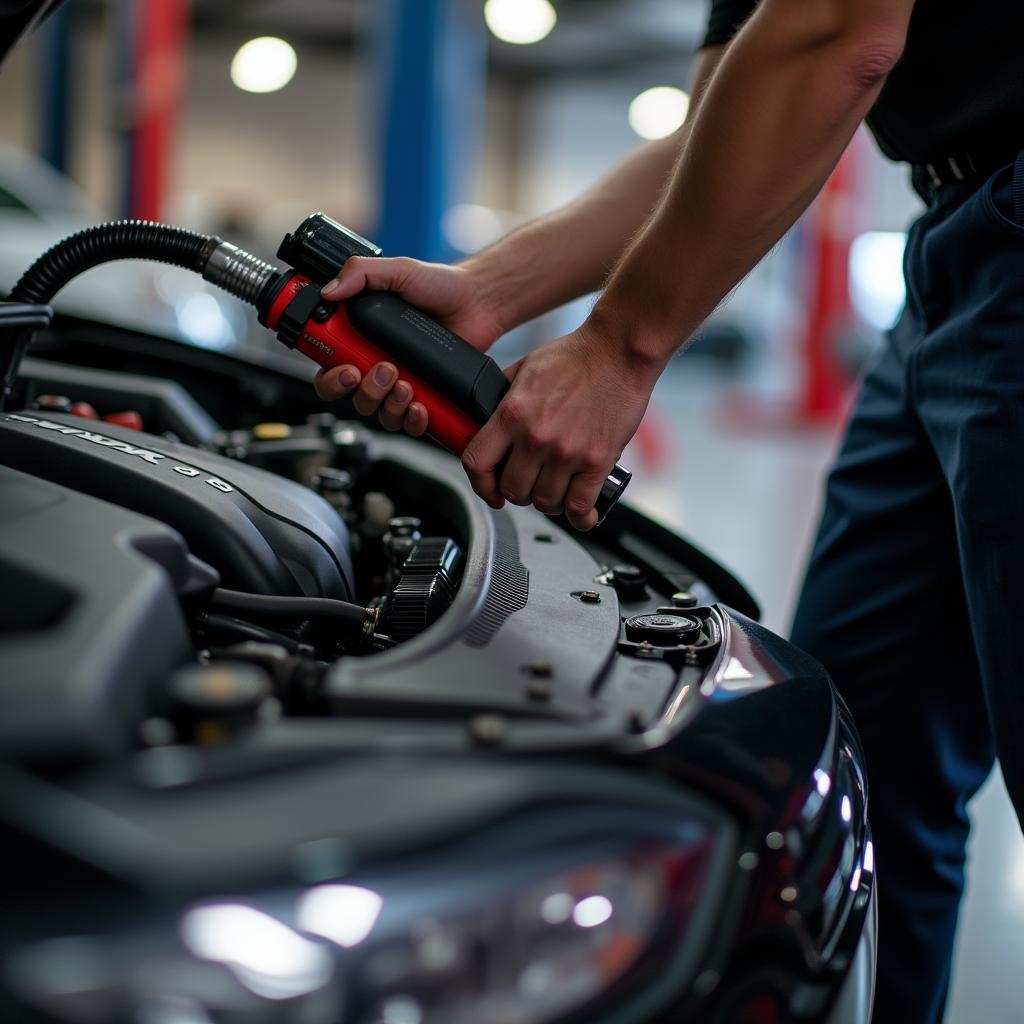When it comes to keeping your car running smoothly, car service centers rely on a range of specialized equipment. One such piece of equipment is the car service pump, an essential tool for a variety of tasks. But what kind of pump do car service centers use exactly?
Unveiling the Essential Pumps in a Car Service Center
Car service centers utilize various pumps, each designed for a specific purpose. Let’s delve into the most common types:
1. Fuel Pumps: The Heart of Fuel Delivery
Fuel pumps are crucial for delivering fuel from the tank to the engine. These pumps come in two main varieties: mechanical and electric.
- Mechanical Fuel Pumps: These are typically found in older vehicles and are driven by the engine’s camshaft. They create pressure to push fuel through the lines.
- Electric Fuel Pumps: Modern vehicles often feature electric fuel pumps located inside the fuel tank. They operate on demand, supplying fuel at a constant pressure.
Expert Insight: “A failing fuel pump can lead to a variety of issues, including difficulty starting, sputtering, and reduced engine performance,” says John Miller, Senior Automotive Technician at Miller’s Auto Repair. “Regular maintenance and timely replacement are essential for optimal fuel system performance.”
2. Air Pumps: Ensuring a Clean Exhaust
Air injection pumps, commonly known as smog pumps, play a vital role in reducing harmful emissions. They inject fresh air into the exhaust manifold, aiding in the combustion of unburnt fuel and reducing pollutants.
3. Coolant Pumps: Regulating Engine Temperature
Coolant pumps are responsible for circulating coolant throughout the engine block and radiator, maintaining optimal operating temperature. Driven by the engine’s crankshaft or a serpentine belt, these pumps prevent overheating and ensure efficient engine performance.
4. Transmission Fluid Pumps: Powering Automatic Transmissions
In vehicles with automatic transmissions, transmission fluid pumps are essential for maintaining hydraulic pressure. These pumps ensure smooth gear shifting and prevent damage to internal transmission components.
5. Oil Pumps: The Lifeblood of Your Engine
Oil pumps are critical for lubricating engine components and preventing friction and wear. These pumps draw oil from the oil pan and distribute it under pressure to various engine parts, ensuring longevity and optimal performance.
 Car Service Pump in Action
Car Service Pump in Action
Factors Influencing Pump Selection in Car Service Centers
Car service centers consider several factors when choosing the right pump for a particular task:
- Vehicle Make and Model: Different vehicles require specific types of pumps, depending on their engine and fuel system designs.
- Type of Fluid: The viscosity and chemical composition of fluids like fuel, oil, coolant, and transmission fluid necessitate pumps designed for their specific properties.
- Application: Whether it’s fuel delivery, fluid extraction, or lubrication, the specific task dictates the type of pump required.
FAQs: Addressing Common Queries About Car Service Pumps
-
Q: How often should fuel pumps be replaced?
- A: While fuel pumps don’t have a set replacement interval, it’s generally recommended to inspect them every 60,000 miles and replace them if necessary.
-
Q: What are signs of a failing coolant pump?
- A: Common symptoms of a failing coolant pump include engine overheating, coolant leaks, and a whining noise from the pump itself.
-
Q: Can I replace a car service pump myself?
- A: While some car owners may have the skills, replacing pumps often requires specialized tools and knowledge. It’s generally recommended to seek professional assistance.
Need Expert Assistance with Your Vehicle’s Pumps?
Understanding the types of pumps used in car service centers empowers you to make informed decisions about your vehicle’s maintenance. If you have any concerns or require professional assistance with your car’s pumps, don’t hesitate to contact our expert team.
Get in touch with us today!
WhatsApp: +1(641)206-8880
Email: [email protected]
We are available 24/7 to provide you with top-notch car service support.
